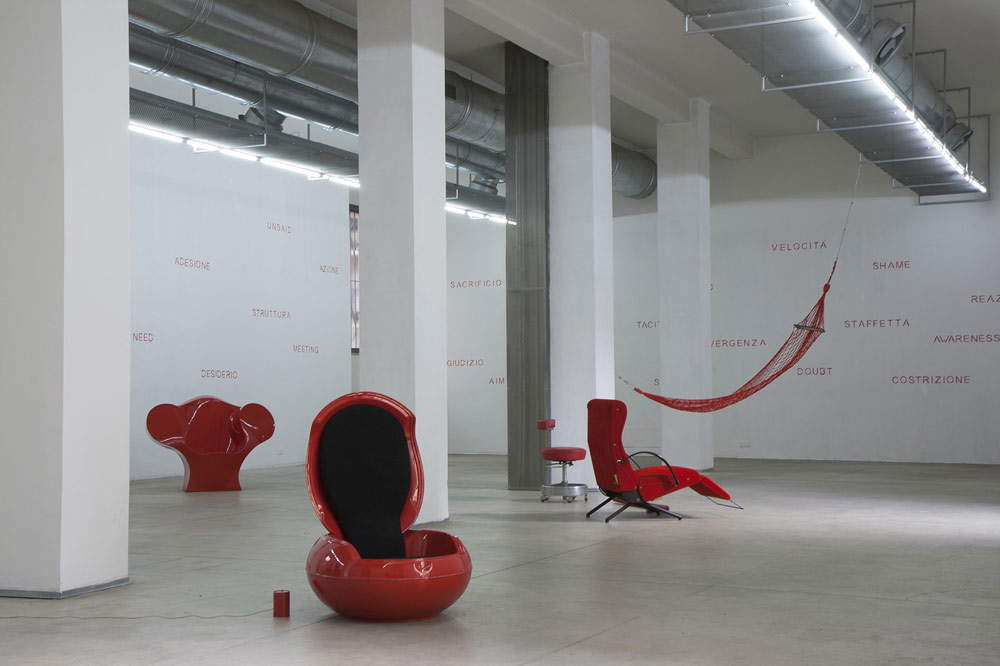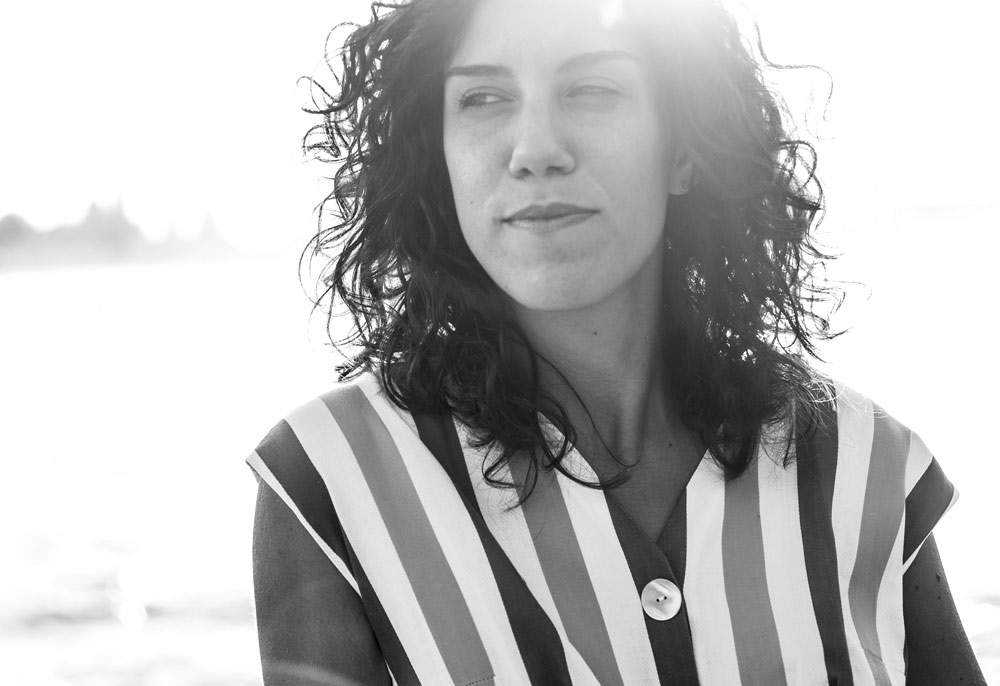The 2018 edition of the Ermanno Casoli Prize, one of the most important awards in the field ofcontemporary art in Italy, has been awarded to Elena Mazzi (1984), who will thus have the opportunity to realize the project Mass age, message, mess age (Elica 2018), part of a work in progress, begun by the artist in 2015, to highlight the dynamics underlying communication strategies. The Ermanno Casoli Prize, now in its 17th edition in 2018, aims to allow an artist to create a work of art intended for a company, with the active participation of the people who work there. Elena Mazzi, says the curator of the Prize, Marcello Smarrelli, was chosen for “the interest she has shown in participatory or ’context specific’ art practices, demonstrating a particular ability to activate virtuous paths of collaboration with groups and institutions that, in various capacities, promote forms of civic participation, collaborative research projects, experiments in alternative education and awareness campaigns on socio-political issues, all themes very dear to Fondazione Ermanno Casoli.”
The project includes a workshop to be held in Fabriano, at the headquarters of Elica, a world leader in the production of cooker hoods for domestic use, on June 28 and 29, 2018, as part of E-STRAORDINARIO, the program devised by Fondazione Ermanno Casoli (FEC), which for years has aimed to bring contemporary art into the business world as an educational and methodological tool aimed at corporate training and which has obtained the patronage of the Ministry of Cultural Heritage and Activities and Tourism. The president of Elica, Francesco Casoli, in this regard said in fact, “I am convinced that art understood as a form of creativity produces innovation, and in our company, thanks to the projects carried out by the Foundation that have involved hundreds of our employees, we have been able to experience the results firsthand. That is why I am convinced that art, and particularly contemporary art, is good for business.”
The research path that Elena Mazzi started with Mass age, message, mess age starts from the study of the word “revolution” in its broadest meaning of radical change in social structures, which can be declined in different historical epochs and in numerous fields of knowledge, and which cannot be separated from the analysis of communication among individuals of the same community. Communicating a lived experience or a set of acquired information is a process that involves a wide margin of error, as the communicating subject tends to emphasize or downplay certain aspects of the information, implementing a personal interpretation of the transmitted data. Elena Mazzi therefore asks what happens when we want to transmit information (even just a word), and whether we can make sure that our interlocutor understands exactly what we are saying or exactly what we mean: the answer to these questions, for the artist, turns out to be negative in most cases, as there may be obstacles during the transmission of the message, which changes in form and meaning. Thus, the goal is to analyze the ways through which communication between individuals in the same community changes when interrupted by possible distortions and/or problems. In this sense, the choice of the wireless telephone game is emblematic, as it is perfectly capable of making this process visible and analyzing it.
Consistent with the objectives of her own research, Elena Mazzi, assisted by Diego Agostini, of the consulting firm Commitment, a trainer specializing in corporate training, will invite 20 Elica employees on Friday, June 29, to work on identifying words taken from everyday managerial language in order to create a glossary to be used for the wireless phone game. Participants will get firsthand experience of the interruptive and distracting conditions a message can incur when it has to go from sender to recipient. Players/participants will be asked to create elements that facilitate or hinder verbal communication through the creative yet functional assembly of objects made from materials chosen from Elica’s industrial production.
Objects made and words used during the training activity will flow into a large installation entitled Mass age, message, mess age (Elica 2018), which will be inaugurated in the fall at the company’s Fabriano headquarters. The workshop, reserved for Elica employees, will be preceded by a talk, open to the public, to be held on Thursday, June 28, from 5 to 6:30 p.m. in Fabriano, at Elica’s headquarters in Via Ermanno Casoli, 2, Auditorium room.
Elena Mazzi was born in 1984 in Reggio Emilia, trained in Siena and Venice, and spent time studying abroad at the Royal Academy of Fine Art in Stockholm. Her works have been exhibited in solo and group exhibitions, including Fondazione Golinelli in Bologna, Art Sonje Center in Seoul, Palazzo Fortuny in Venice, 16th Quadriennale in Rome, Fondazione Sandretto Re Rebaudengo, 14th Istanbul Biennale, 17th BJCEM Mediterranean Biennale, Fittja Pavilion during the 14th Venice Architecture Biennale. She participates in several residency programs and is the winner of many awards, most recently the 2017 On Board award. Her poetics investigates the relationship between man and the environment around him, in which he lives and with which he is confronted every day: a type of analysis that is often linked to an anthropological gaze and approach, which goes to analyze an identity at once personal and collective.
In the following images: top, Elena Mazzi, Mass age, message, mess age (2015, Turin, Spazio Barriera. Ph. Nadia Pugliesi). Bottom, portrait of Elena Mazzi.
 |
 |
| Young artist Elena Mazzi wins the 2018 Casoli Prize. Here is the work she will create in Fabriano |
Warning: the translation into English of the original Italian article was created using automatic tools. We undertake to review all articles, but we do not guarantee the total absence of inaccuracies in the translation due to the program. You can find the original by clicking on the ITA button. If you find any mistake,please contact us.